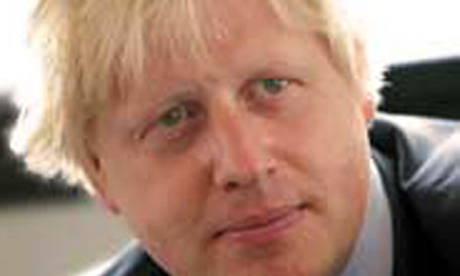Eco-friendly mayors are a must, say Hackney Friends of the Earth

How 'green' is London Mayor Boris Johnson?
Hackney residents are a green-minded lot, new evidence reveals.
In a recent survey by Friends of the Earth, 47% of Hackney residents said they believe that the most important energy issue facing the UK today is the impact of our energy system on climate change.
Equally, 65% believe that the priority for energy spending over the coming decades should be ‘power from the sun, waves or wind’, whilst 25% plump for ‘Making energy savings in homes, business and industry.’ Fully 95% think that ‘more green energy should be generated locally, e.g. through solar panels on roofs or wind farms owned by councils or communities.’
Large cities such as London have an important role to play in reducing climate change, and it is the politicians in charge of those cities who are at the forefront of such activity.
Mark Watts is a man who knows more than just a thing or two about pushing for environmental action amongst decision makers, particularly amongst mayors.
At a recent talk in Hackney, he outlined some of his experience working with a panoply of international mayors, from New York to Seoul, back via Warsaw. Mark Watts used to work at City Hall, where he led the development of London’s climate change action plan, and now works for the engineering firm Arup, where he leads their engagement with the C40 group.
The C40 is a club of large cities committed to tackling climate change, and the first point he makes is that they do have a major carbon footprint. With 297 million people, they create 18% of global GDP and a massive 10% of global C02 emissions. The second point is that cities are therefore in a fairly unique position when it comes to driving action on climate change. Many mayors enjoy strong powers across the infrastructure that contributes to climate change, from buildings and transport, to waste, water and outdoor lighting. Their ability to impose policy change, and therefore to drive down emissions, is significant.
Of course, the level of democratic engagement in C40-group countries varies, and it has been suggested that green authoritarianism might work in some places and at some times. The predictions for what will happen if we continue casually to ignore planetary boundaries has certainly given rise to extreme suggestions. Scientist and environmentalist James Lovelock is often quoted in this vein, once having said: “It may be necessary to put democracy on hold for a while.”
Happily, it is much more widely believed that better environmental governance must go hand in hand with a strong democratic framework. As Ian Christie says: “Ecological policy is strongest where it is based on a free flow of information, research results, debate and experimentation.”
The history of authoritarian states has shown them to be bad at environmental policy, and those things that it demands: “social and ecological justice, and…international collaboration.”
And this brings us back to mayors. In countries like the UK sustainability and democracy are – or at least aspire to be – intimately connected. And that means that voters must support greater action on environmental issues.
